
Aloxy
ID: 3460
September 13, 2021
End-to-end IoT solutions make assets smart, automate processes and deliver actionable insights into industrial operations.
ID: 4342
May 30, 2022
DunavNET helps and supports corporate digital journeys with solutions and consulting services that are built on a strong foundation of technology and research. The company designs, develops and implements turnkey solutions that leverage IoT, machine learning and artificial intelligence technologies. An extensive portfolio of solutions is offered to support digital transformation in various domains, with farming and food operations being the main areas of focus. The company was established in 2006 in Novi Sad, Serbia, and has since then grown to establish an additional office in Dublin, Ireland, and employ more than 30 people, whose core expertise lies in computer science (IoT/ML/AI) and software engineering.
DunavNET provides complete digitalisation solutions to their clients so they can focus on their core business. Agriculture related solutions are built on standardised, enterprise-grade technologies and components, using Microsoft Azure as usual foundation, to ensure scalability, cost-effectiveness, reliability, and security. The primary focus of DunavNET is to enable digital transformation of the food value chain, from farm to consumer, achieving more efficient, sustainable, and transparent food production. The company strives to become a top provider of IoT corporate solutions for the smart agri-food domain with a strong contribution to the sustainable development of the world.

agroNET is an end-to-end solution that DunavNET offers to provide farm management in cultivation fields. The solution collects data on the field and throughout the supply chain, making optimal crop management more accessible, and providing product information transparency to consumers. The agroNET solution is applicable in a variety of cultivation fields such as vineyards and orchards as well as in vegetable and arable crop production.
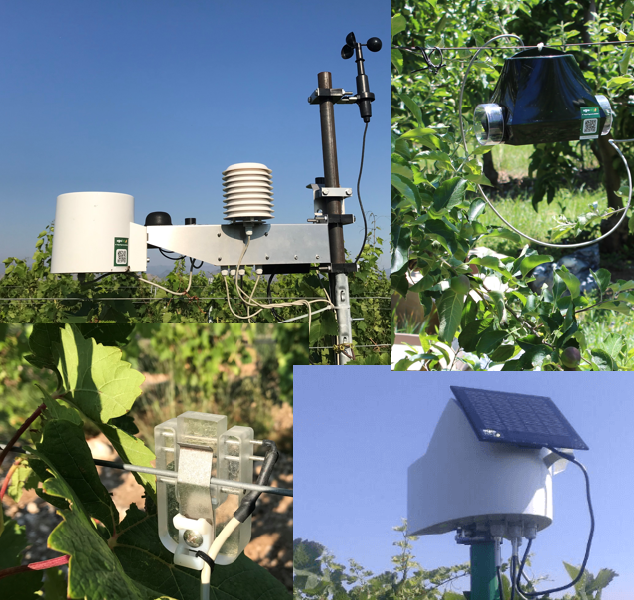
The incentive for DunavNET to develop their IoT solution derives from the global concern that traditional agriculture will not to be able to meet the raising demands food caused by our growing World population. Inefficient practices in the domain negatively impact the productivity, the climate and, in some instances, the health of humanity. DunavNET strives to implement new technologies, making the domain more intelligent, sustainable, and streamlined for the future.
Nowadays, farmers often lack the necessary information and tools to support the optimal production of crops and animals. Traditional agriculture is often based on experience and cultivation operations that are fragmented across different fields as the basis for successful production. However, modern agriculture is facing a great challenge in producing sufficient food, achieving high yields and product quality, with input optimization and less environment footprint. The knowledge of experience does not always fully cover the varying parameters of relevance for the health of the crops and how they are influenced by their regional and biological origin. It may hamper the farmer’s overview and management, potentially causing spread of pests and disease and/or imprecise fertilisation and watering, often resulting in loss of crop quality and yield. To be able to meet the challenge, it is necessary to transform the traditional practices into “smart agriculture” that support operations with factual information. What farmers need are complete solutions providing overall insight into production with rich set of data gathered as a basis for analysis and decision support.
Recognising this unfulfilled demand, DunavNET decided to develop a solution that can support farmers in gaining an overview and control over their cultivated fields, and tools that enable them to enhance agricultural practices to protect and nurture the crops in the most efficient manner, achieving enhanced cultivation outcomes.
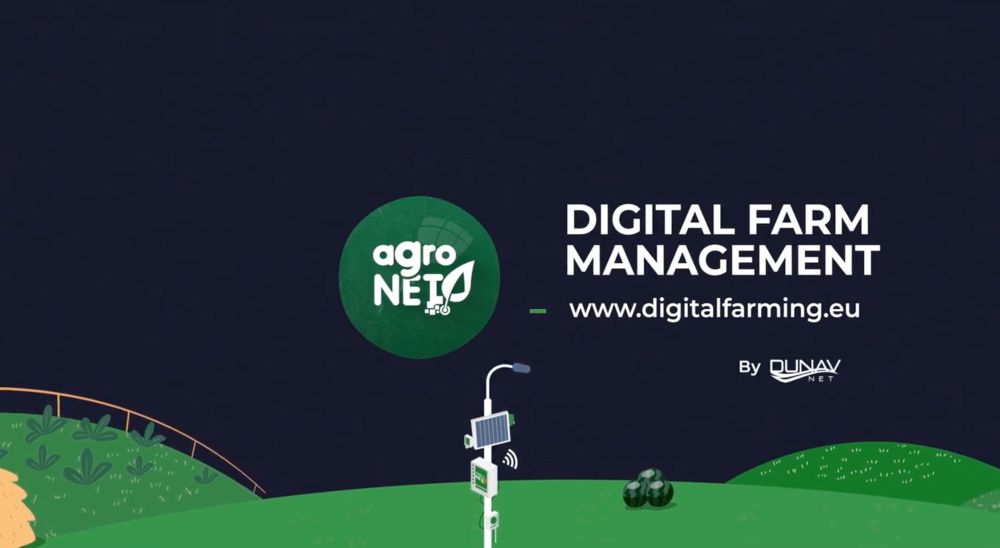
The initial version of agroNET was conceptualised in 2015. Rapid prototyping and involvement in a range of European projects allowed DunavNET to set up pilots that deployed the solution in a varied range of cultivation fields and geographical locations. This was a golden opportunity for the company to engage farmers and other stakeholders in open discussion and collect feedback while testing the features and functionalities of the solution. This approach helped DunavNET to enhance and extend both the hardware and software in several iterations, and prepare the overall offering for the commercial phase.
“After further discussions with farmers, we decided to build the platform enabling holistic farm management instead of building solutions for individual problems.”
Senka Gajinov, Product Manager at DunavNET
Over the next half-decade, further iterations were made to build an integrated data view of all farm operations, making agroNET a central hub for overcoming fragmentation of data generated by equipment used to monitor and manage specific processes on farms. The solution of today is an end-to-end platform that combines physical devices for data collection with edge and cloud-based components where the information is gathered, and the artificial intelligence algorithms executed. IoT devices are deployed in a cultivated field to gather information about the environment, soil conditions, machinery status and utilization, as well as further parameters of relevance to the health of the crops. The platform provides a range of data analytics modules providing real-time guidance and support to farmers in ensuring the optimal management of their farming activities.
The development of agroNET is an ongoing process, and DunavNET continuously adds new features as they carry on with learning more about the needs and requirements of farmers and other stakeholders. A more recent demand was posed by the consumers at the very end of the food supply chain, who are becoming more conscious about the sustainable and ethical footprints of food production as well as the quality of the food and how it influences human health and physical endurance. Hence, consumers are increasingly setting up requirements for the genesis of what they ingest and demand transparency from farm to fork. DunavNET is responding to this by extending the agroNET solution to include a supply chain perspective in collaboration with partners like OriginTrail, providing easily accessible traceability data that enlighten consumers and ecosystem partners about the production and handling of specific crops on a specific farm. Different solutions that address agriculture production are available on the market, however, these solutions are usually isolated, focused on one farm operation, without possibility of analysing different data sets thus lacking the holistic overview and decision support based on rich set of data analysis that agroNET can provide.
“Well, you always have competitors, and that is a good thing. It is something that makes you become better every day.”
Senka Gajinov, Product Manager at DunavNET
The agroNET solution combines hardware engineering and software development and offers a cloud-based platform for monitoring and managing agriculture operations related to the health of cultivated fields. The physical components of the solution cover a range of agroNET devices that are installed in the cultivation field. These devices include a weather station, which harvests data through sensors that measure air temperature, humidity, and precipitation – and in some cases also leaf wetness, wind speed and solar radiation. In addition to these devices are also a range of optional add-on devices that collect data whose relevance depend on the specific type of cultivation, such as a camera, which harvests optical data in the form of images, or soil condition monitoring that measures moisture, temperature and electro conductivity.
The collected data is transmitted to the agroNET server via either cellular GPRS [1], Wi-Fi [2] or LoRaWAN [3] network. The agroNET server is hosted by a Microsoft Azure cloud platform to ensure reliable and secure communication between IoT devices, application interfaces and potential third-party integrations.
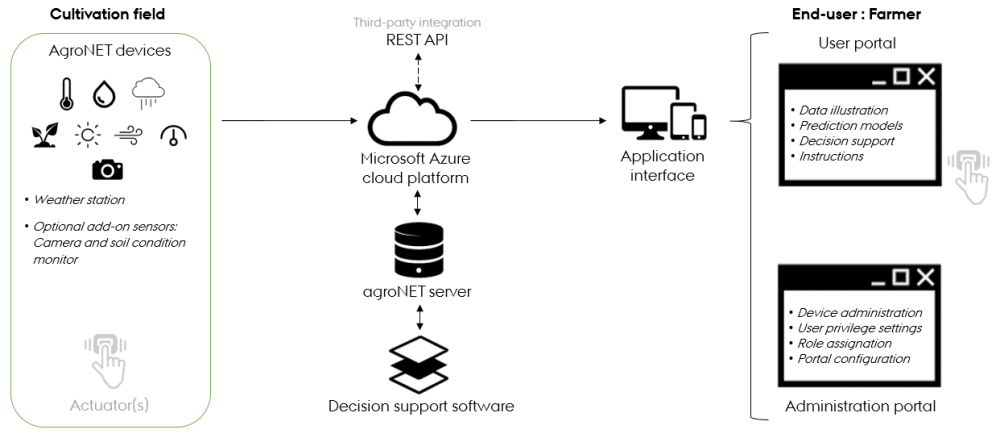
Data processing can take place locally on the devices and on the cloud platform. The agroNET server feeds the data into an analysis and decision support software, which outputs information to application interfaces that are available via mobile or web to the end-user:
These applications facilitate remote monitoring of the farmer’s cultivated fields and remote management of the agroNET devices. The user portal visualises the collected data on intuitive dashboards, often illustrated through graphs, charts and tables, offering a complete overview with real-time monitoring of the cultivated areas, while also providing statistical insights and basic analytics across all monitored parameters.
The agroNET server uses decision support software to process the data which enables digitised prediction models to generate valuable insights on irrigation sequences, and pests and disease appearance according to the life cycle and growing period of the crops. This essentially increases control over the cultivated areas and enables precision farming, cultivating better crop quality and yield regardless of regional and biological conditions.
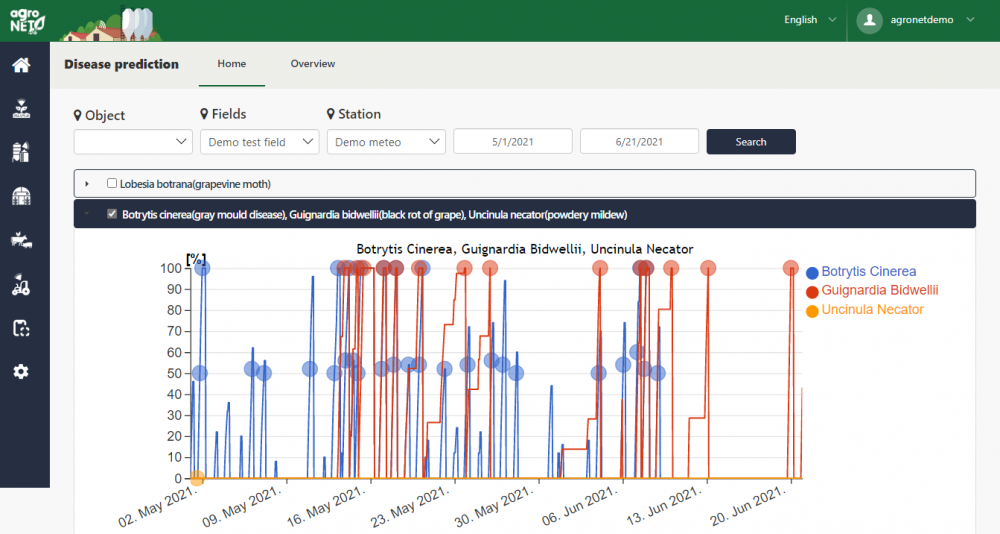
Based upon the data processing in the cloud, the platform is able to generate recommendations, for example on when and how much to water specific crops, and on what type and amount of pesticide to use, and accordingly provide the instructions for farmers in real-time. Based on this data, the farmer may further be able to automate specific farming procedures if installing supportive IoT devices in his monitored cultivation fields. Automation could, for example, apply to irrigation.
“We are using IoT technologies for creating all of our solutions.”
Senka Gajinov, Product Manager at DunavNET
All data is made available via REST APIs to enable interoperability with other devices, services as well as third-party systems. This enables the data to be incorporated into a so-called ‘product passport’ and shared between partners up and downstream throughout the supply chain linked to the specific farm. A ‘product passport’ provides unique identification of each product unit and/or batch and digital monitoring of its movements and transformations from the source to the place of consumption in a decentralised, reliable and immutable way. The data exchange protocol used for the purpose is blockchain-based to ensure trust and transparency between actors and the integrity of the data exchanged.
The development of DunavNET’s IoT solution is a contribution to the global ambitions for more intelligent, sustainable and transparent agricultural practices. Such solutions are prevalent in streamlining the domain to the future, fostering impactful climate initiatives and enlightening consumers. The AI platform facilitates the redemption of precision agriculture outcomes such as a reduction in amounts of resources, effort, time and money spent on the field, compared to traditional practices in the domain of cultivation.
“We are actually enabling farmers to capture and collect all relevant farm data in one place and then do analytics across the rich set of data instead of running multiple isolated applications.”
Senka Gajinov, Product Manager at DunavNET
Ultimately, this data-driven insight and overview can support farmers to attain the maximum yield possible in the most efficient way. The noticeable outcomes that can be derived from the agroNET solution largely rely on the following distinctive features:
To DunavNET, the agroNET platform is a vital underpinning for the extensive service ecosystem and the revenue streams of the company. Monetary outcomes are harvested through a continuous profit mechanism that is based on software subscriptions, and on top of that is DunavNET keen to explore the monetisation of data.
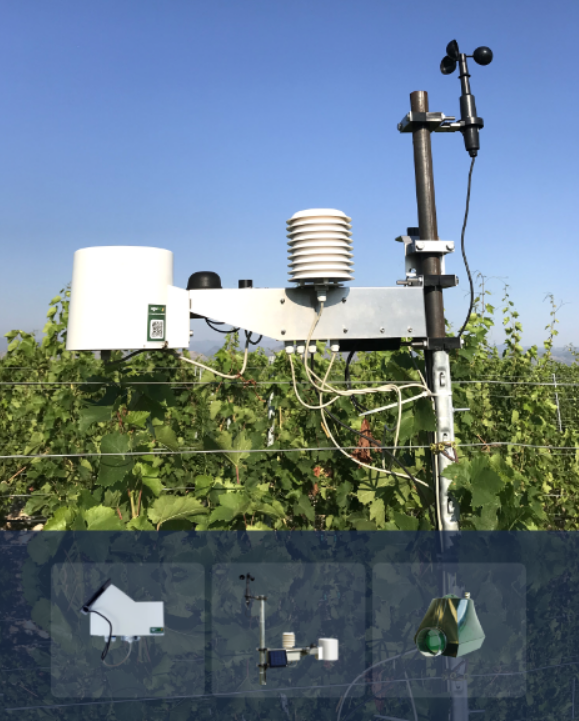
Direct customers of the solution include independent farmers and agricultural corporations engaged in crop production. Indirect customers include 1) consultants that advise end-users on agricultural digitalisation, as the incorporation of agroNET as part of their service enables them to calculate prediction models, send automated instructions to clients and decrease the time they spend visiting fields, and 2) suppliers of agricultural machinery and devices (e.g. pesticide sprayers and irrigation systems), as agroNET can serve as an added value offering to their own product portfolio.
These various customer groups, as well as the hands-on end-user – the farmer, deploy the agroNET solution for on-farm activities, and the value proposition is therefore in essence constituted by the above-listed features. However, alongside the on-farm actors are also a range of post-farm actors that are able to leverage valuable outcomes from, not the features, but the data generated by the solution. Serving as input for the product passport, this data enables supply chain partners and end-consumers digital traceability of the crops throughout the food production process and transparency of the journey from farm to fork. Hence, based on usage of the agroNET solution, beneficial outcomes can be summarised into:
On-farm actors:
“Embedded expert modules and data analytics are the core value of the agroNET.”
Senka Gajinov, Product Manager at DunavNET
Supply chain partner and end-consumers:
“The more data we collect from the fields, the more value it will be possible to create, so focus will move from on-the-farm activities to the complete value chain.”
Senka Gajinov, Product Manager at DunavNET
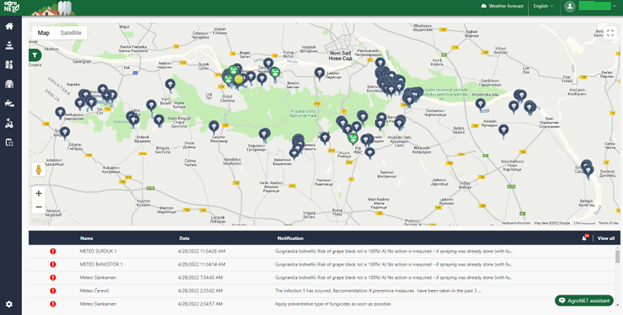
Since DunavNET introduced the idea of an IoT/AI platform to support optimal cultivation and supply chain transparency, many technological iterations have passed, and many valuable learnings have emerged. Some of them with potentially transmissible value for other actors in the IoT ecosystem.
“The agriculture market is very specific and the adoption of new technology is a slow process.”
Senka Gajinov, Product Manager at DunavNET
The essential learning for DunavNET has indeed been the importance of establishing a strong ecosystem of partners to nurture scalability, development and growth of the business. This ecosystem has enabled the company to quickly and effectively being able to deploy agroNET in numerous cultivation fields, and it has created the basis for expanding the client base as well as the functionalities and features of the solution. DunavNET relies on partners ranging from hardware vendors to communication network providers and system integrators to build the custom solutions, as well as the international IoT community, researchers and innovators in the field to share knowledge. With these partners, DunavNET can rapidly and efficiently deliver the most complex IoT solution anywhere in the world.
DunavNET considers a number of points to be vital for the success of their IoT solution so far. Taking departure in the journey of development and implementation of agroNET, these points are compiled into a list of recommendations below:
1. User feedback
“We are talking with farmers and that is always our starting point. It is very important to understand their needs and their problems.”
Senka Gajinov, Product Manager at DunavNET
User feedback is the guide for development and addition of new features, functionalities and services to IoT solutions. DunavNET emphasises the significance of listening to users as they deploy the company’s solutions, learning from the feedback they provide and, based on this, enhancing and extending the solution. As standard practice, DunavNET works directly with the farmers during design and validation of the solution, and beyond the initial phase, the company keeps a direct link to a number of strategic stakeholders throughout the supply chain.
2. Penetrate the market with trust and support
Gaining the trust of the end-users is essential to facilitate penetration of a market domain as traditional as agriculture with solutions that are built on novel technology. In the early commercialisation of agroNET, DunavNET was challenged by this matter and had many difficulties convincing farmers about the value to derive from the solution. For IoT innovators that operate in similar markets, DunavNET recommends seeking the initial customer acquisition through peers of the targeted user: Focus on identifying the trendsetters, engage relevant stakeholders from the network and offer open support. From experience, DunavNET finds that once the first well-renowned customer is signed up and usable as a reference use case to illustrate the value of the solution, tables are turned. Hence, the influence of word of mouth cannot be underestimated, and support beyond the point of sale is crucial in sustaining the trust.
“Supporting the end-users is very important for successful implementation and commercialisation of solution.”
Senka Gajinov, Product Manager at DunavNET
3. Educate users on the value proposition
Being able to clearly communicate the benefits for users to gain from a solution is crucial. DunavNET does this proactively by promoting the value of new technologies in agricultural teaching and by providing first-line support to customers.
“It is very important to explain to farmers what technology can do for them so that they can better define their needs according to that.”
Senka Gajinov, Product Manager at DunavNET
When offering advanced IoT solutions, it may furthermore be necessary to educate the users on how to actually use the technology, making sure that they understand its features and are able to make the best of it. This point is crucial in the case of agroNET because the value proposition emerges as a consequence. During this education process, DunavNET recommends experts to keep it simple and gradually build on top of the farmers’ newly acquired technological capabilities.
One final insight shared by DunavNET when reflecting upon the means for achieving success with IoT solutions is a specification of the most crucial determinants being confidence, curiosity, persistence and passion.
“We believe in ourselves, and then we believe in data! … believe in data and understand the end-users for whom you are preparing a solution.”
Senka Gajinov, Product Manager at DunavNET
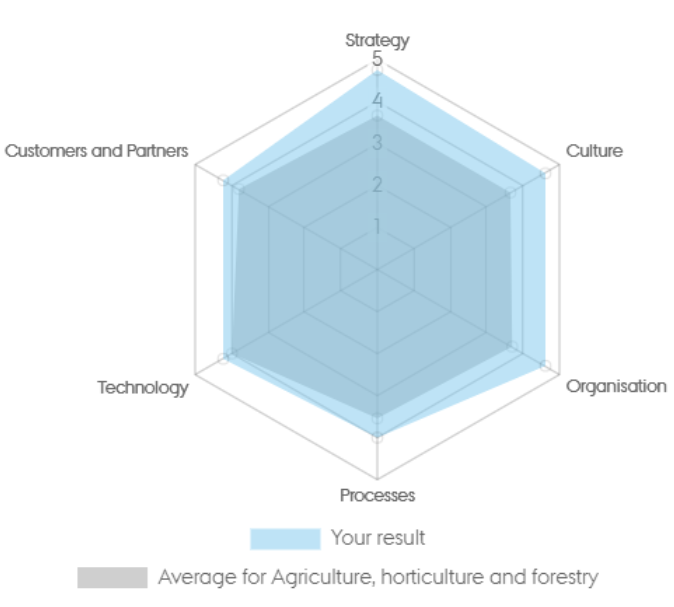
DunavNET assumes a high level of digital maturity with an overall score of 4.41. The score indicates that the digital capabilities of the company are vastly mature, and that they perform above average for the Agriculture, horticulture and forestry sector.
The Digital Maturity Assessment Tool is copyrighted by Associate Professor and PhD Annabeth Aagaard, Director at the Interdisciplinary Centre for Digital Business Development, Aarhus University. To get the digital maturity of your company mapped out, click here.
[1] GPRS (General Packet Radio Service): a packet-switching technology that enables data transfers through cellular networks.
[2] Wi-Fi: a wireless networking technology that uses radio waves to provide wireless high-speed Internet access.
[3] LoRaWAN: a Low Power, Wide Area (LPWA) networking protocol designed to wirelessly connect battery operated ‘things’ to the internet.
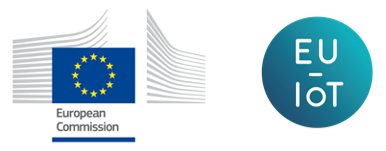
Copyright notice: © 2020 – 2023 EU-IoT Consortium.
This material was produced as part of the EU-IoT project, grant ID 956671, and is funded by the Horizon 2020 Framework Programme under topic ID ICT-56-2020.
EU-IoT is the European IoT Hub. The EU-IoT project works towards growing a sustainable and comprehensive ecosystem for Next Generation Internet of Things.
Source of origin: Information to document this use case originates from the H2020 call: DT-ICT-13-2019 Digital Platforms/Pilots Horizontal Activities (CSA); Project Open DEI 857065; Period: 01-05-2019 to 31-12-2022; EC contribution 2 mil. EUR.
